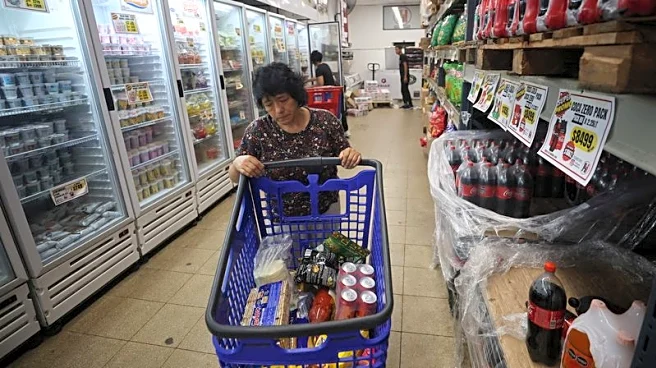BUENOS AIRES (Reuters) -Argentina's consumer price index is forecast to have risen 2.0% in August over July, inching up from a month earlier and driven by higher grocery and public transport costs, a Reuters poll
showed.
That reading would represent a marginal acceleration from July's 1.9% monthly pace, but an overall downward trend for inflation is not expected to alter course due to fresh currency turbulence in the country.
The 12-month rate likely dropped to its lowest in seven years, reinforcing a disinflation path that has become the main success of the government of libertarian President Javier Milei, who nevertheless faces political challenges.
With official data due to be released on Wednesday, the survey of 20 analysts polled September 3-5 yielded a median estimate for a 2.0% monthly rise in the headline consumer price index.
"Seasonal prices (probably) increased 2.8% driven by vegetables, and regulated prices rose 2.2% on transportation and cigarettes," EcoGo analysts wrote in a report.
A smaller sample of seven economists surveyed in the poll showed 12-month inflation likely fell from 36.6% in July to 33.8% in August. That would be the lowest since 31.2% in July 2018.
After consistent progress to rein in inflation in 2024, Milei's first year in power, price worries have bubbled up again in recent months as the peso comes under renewed pressure.
However, pass-through to consumer prices has been averted so far due to the adoption of hawkish policy measures, economists say.
"This was achieved at the cost of a monetary policy that continued to push up rates, which will have a negative impact on consumption and economic activity," said Clara Alesina, an economist at Fundacion Libertad y Progreso.
An escalation of short-term bill yields helped drain liquidity that would have otherwise sought refuge in the U.S. dollar amid rising electoral concerns, worsened by allegations of government corruption that Milei denies.
The opposition Peronist party won a legislative vote in the key province of Buenos Aires on Sunday, leaving Milei's La Libertad Alianza (LLA) ruling party in a distant second.
Local financial markets could suffer at the open later on Monday, reigniting inflation fears, as the provincial vote may be seen as weakening LLA's chances in a national Congress midterm election due on October 26.
(Reporting and polling by Gabriel Burin and Hernan Nessi;Editing by Helen Popper)









